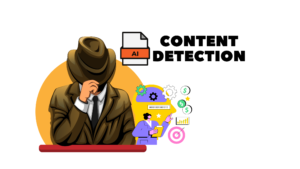ChatGPT and AI Job Takeover: What You Need to Know
Many people worry that ChatGPT, a new artificial intelligence tool that can create content, would put people out of work. Some people think it’s highly improbable that ChatGPT or any other similar AI tool would ever replace humans in the workplace, while others see it as a remote possibility. This article will discuss the ways in which ChatGPT might lead to a loss of employment, the types of businesses that can feel its effects, the steps that can be taken to lessen the impact on daily life, and the psychological effects that may ensue.

What is ChatGPT?
The potential effects of ChatGPT on the labour market can’t be discussed until we have a firm grasp on what it actually is. OpenAI’s ChatGPT is an artificial intelligence language model that can create text in response to a question or other cue. It can write stories, generate code, and even handle customer support since it has been trained on a huge quantity of data. Release of ChatGTP-4 and the approaching AGI Tsunami have the potential to completely alter the way we interact with one another and perform tasks.
Preparing for probable job losses due to AI and ChatGPT can be a difficult feat, but individuals can take proactive efforts to lessen the effect of employment losses by following a step-by-step strategy. If you’re worried about job losses due to AI and ChatGPT
Here’s a whole guide with statistics to help guide us through these times.

STEP A:
Popular research suggests that 75 million jobs might be lost to AI and automation in the near future. Similarly, Oxford Economics estimates that as many as 20 million industrial jobs throughout the world might be automated away by robots by 2030. These numbers show how important it is to plan for the possibility of job loss due to AI and ChatGPT.
STEP B:
Identify the Different Jobs that may be affected in future. A different survey found that the manufacturing, transportation, and retail industries were the most at risk of job loss due to automation. Once people have a sense of which sectors will be hit most, they may begin looking into other fields of work and acquiring new skills in areas that are less likely to be affected.
STEP C:
There are several opportunities to acquire marketable talents through formal education and occupational training. Machine learningand naturalLanguage Processing for instance, were identified to be the most in-demand skills in the field of AI in a research conducted by Udacity. Gaining expertise in these areas can help people break into the artificial intelligence (AI) workforce.
STEP D:
Think about starting your own business or working as a freelancer. The emergence of the “gig economy” has made it easier than ever for people to be their own boss. Individuals can generate their own employment prospects and become less reliant on the traditional labour market by launching their own businesses or engaging in freelance work.
STEP E:
Keep up with the latest in artificial intelligence and ChatGPT news. Those who stay abreast of technical developments can foresee the fields and occupations most at risk of being replaced by machines. Individuals may use this information to better navigate the job market and make educated decisions about their professional futures.
In conclusion, it’s important to take preventative measures in light of the threat of job displacement posed by AI and ChatGPT. Individuals may better prepare themselves for the fast changing work market by learning about the possible effect, recognizing susceptible industries, acquiring new skills through education and training, exploring entrepreneurship and freelancing, and keeping up with the newest advances.
ChatGPT’s potential to eliminate human labour by automating routine operations is a major concern. ChatGPT, for instance, might supplant human customer service reps by providing immediate, comprehensive solutions to customers’ questions and concerns. Similarly, ChatGPT can replace content writers since it can produce articles and blog posts with minimal to no human intervention. More advanced ChatGPT may also lead to the loss of employment in data-intensive sectors, such as the banking and insurance industries.

Which Industries Are Most Exposed?
Although though every sector might be affected by ChatGPT, some are more vulnerable than others. Up to 80% of transportation and logistics professions are at risk of becoming automated in the near future, according to research by McKinsey & Company. The paper also argues that employment in the service sector, including retail and food service, are at danger due to the possibility that ChatGPT would replace human workers in activities such as:
- Order-taking
- Payment processing.
- Banking
- Insurance,
- Data analysis.
- Programming
- Customer Service
- Content creation
- Transportation
- Hospitality e.t.c.
The Psychological Impact of Unemployment
While the economic effects of ChatGPT are troubling, the psychological toll it may have on individuals who are impacted should not be overlooked. The loss of a job may be devastating, resulting in emotional and financial distress. Furthermore, many of the professions that ChatGPT might displace are low-skilled and may be held by persons with restricted career options.
Concerns have been made concerning the loss of employment and the psychological toll of lay-offs due to the increased usage of artificial intelligence tools like ChatGPT in the workplace. Experts agree that the psychological and financial stresses that come with job loss and protracted periods of unemployment are interwoven.
While some worry that ChatGPT would lead to a loss of work, others point out that it may just cause a change in the sorts of jobs available and the skills required for them.
However other sources argue that the widespread use of AI technologies like ChatGPT would lead to massive employment losses in fields including advertising, technical writing, journalism, and content production.
Several researchers and technology professionals have called for a “pause” in the introduction of such technologies because of the substantial disruption they may cause in an already uncertain job market.
The emotional toll that job loss might have on impacted individuals and communities cannot be ignored. Experts agree that persons suffering the emotional and financial hardships of job loss might greatly benefit from access to mental health services. Employers and governments should invest in their workforces by providing chances for people to acquire new skills and enter new fields.
Jobs are being lost to AI, but humans may adapt by acquiring new knowledge and training.
As computers and algorithms are becoming more capable of completing jobs that were previously done by people, the emergence of AI has created a great deal of fear about job loss.
AI is not just a danger to employment, but rather a chance for people to acquire new ones and adapt to a dynamic labour market.
ChatGPT Is a Very Effective Chatbot
ChatGPT is a strong chatbot that uses artificial intelligence to simulate human conversation in response to a wide range of questions and statements. To provide replies that are both useful and interesting, ChatGPT employs sophisticated natural language processing (NLP) algorithms to study and understand human language.
Copywriting in Several Fields Is Now Possible Thanks to AI
Chatbots aren’t the only AI-powered content creators out there; news, sports, finance, and entertainment are just as likely to benefit from AI-generated content as any other. In order to produce text that is tailored to the user’s desired keywords and phrases, these AI writing tools do extensive data analysis using machine learning algorithms. In addition to being efficient and cost-effective, this method also guarantees that the information will be relevant to the readers’ requirements and interests.
The Content Production Process Is Being Revolutionized by Cutting-Edge AI Writing Tools
A lot of things are shifting in the content production landscape as a result of the rise of sophisticated AI writing tools. These programs may produce material that is not only interesting and informative, but also well-suited to distribution via social media and search engines. Because of this, it is less difficult for firms and people to find their ideal customers.
When it comes to basic coding, AI will be more dependable than humans.
Simple programming tasks are one area where AI is already proving more trustworthy than most humans. Automating mundane programming activities like script removal and language translation is becoming increasingly possible as computers and algorithms advance. This not only saves time and money, but it also eliminates room for error and makes for more reliable code.
Automated Artificial Intelligence Email Responses
Using chatbots to reply to consumer emails is another way AI is changing the game for businesses. This not only helps conserve valuable time and materials, but also guarantees that customers’ questions are answered thoroughly and promptly. Businesses can better allocate resources by automating repetitive customer support operations.
Learn as much as you can and put that knowledge to good use.
While advances in artificial intelligence (AI) may appear ominous at first, it’s vital to keep in mind that technology is ultimately beneficial. You can keep up with the ever-evolving work market by investing in your own education and taking advantage of resources like Chat GPT and cutting-edge AI writing tools. Being abreast with the most recent developments in AI is crucial if you are an entrepreneur, marketing, or employee seeking.
All jobs be automated by GPT? Startling Results From a Recent Research
Concerns about job loss and automation persist, despite the numerous advantages of AI technology. Unexpected results from a recent research, however, imply that not all tasks can be automated using GPT. There are numerous vocations that still demand human creativity, insight, and problem-solving abilities despite the fact that AI can automate mundane work. So, it’s crucial to see AI as an augmentation, rather than a replacement, for human skills.
In conclusion, it’s crucial to see AI not as a danger but as an opportunity for content creators and other businesses. Individuals and organizations may stay competitive by using artificial intelligence (AI) and expanding their skill sets.
According to the research, GPT-4 and other LLMs will be especially helpful for occupations that need a blend of intuitive and monotonous activities, such as composing basic reports, responding to straightforward customer service inquiries, and summarizing vast volumes of data
And thus, will all employment be automated in GPT-4?
In short, the answer is negative. Even if the adoption of LLMs like GPT-4 might have a profound effect on the labor market, not every job is at risk of becoming completely automated. Instead, LLMs will be used to supplement human capabilities and boost output, especially in positions that need a blend of creative and repetitive work. But keep in mind that when new technologies develop, the job market will change as well, and that employees will need to update their abilities to remain competitive.
Another OpenAI language model, GPT-3, has also received a lot of interest in the AI community. It does have certain restrictions, though. It has a reputation for being overly wordy and awkwardly phrased. Yet, OpenAI’s analysis shows that GPTs may affect as much as 80% of the American labour force.
Artificial intelligence (AI) may also be used to boost creative productivity and provide businesses a competitive edge. Nonetheless, it’s important to keep in mind that AI will render some occupations obsolete. Experts will still be needed for jobs that demand interpersonal interaction. Including AI is essential for future job stability. We must go forward by accepting the new realities of the labour market and the changes brought forth

In conclusion, we cannot exclude the possibility that ChatGPT and other AI technologies will have an effect on job loss and the psychological burden of unemployment.
It is important for individuals and communities to have access to mental health support and resources for retraining and upskilling in order to navigate potential changes in the labor market, even though some sources suggest that the adoption of such technologies may not necessarily lead to job loss.









Good day! I just want to offer you a big thumbs up for your excellent information you have got here on this post. Ill be coming back to your blog for more soon.